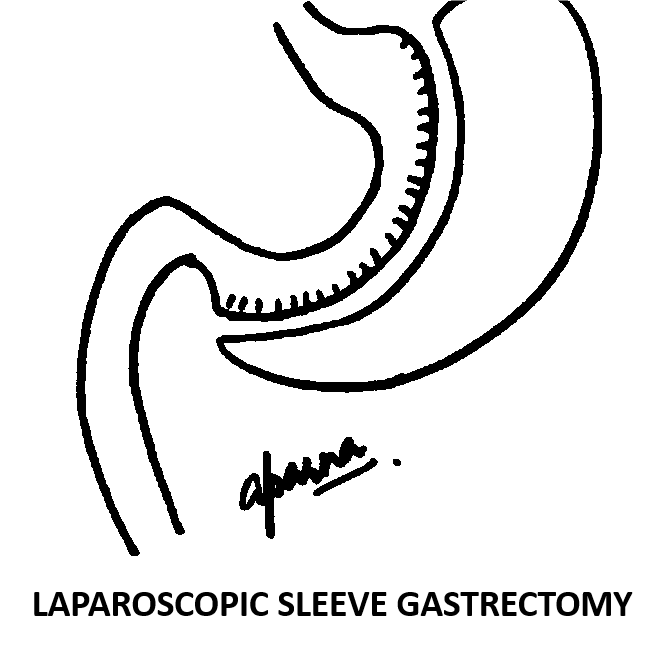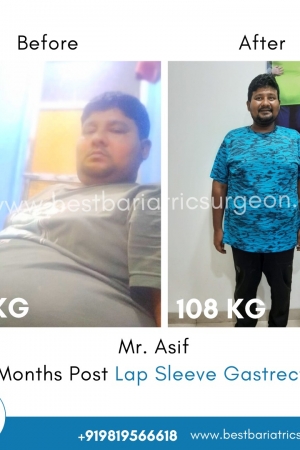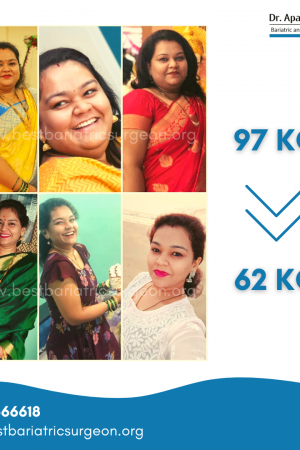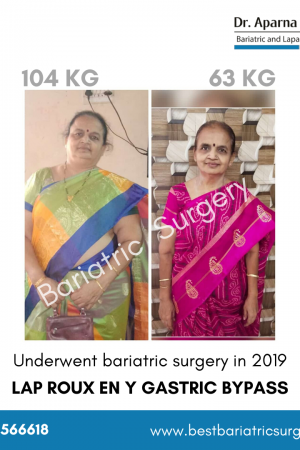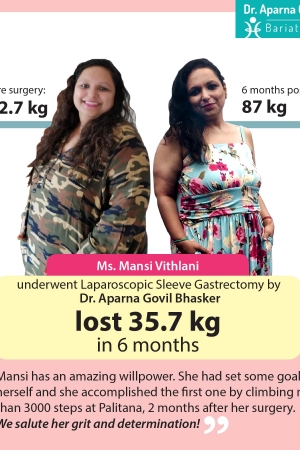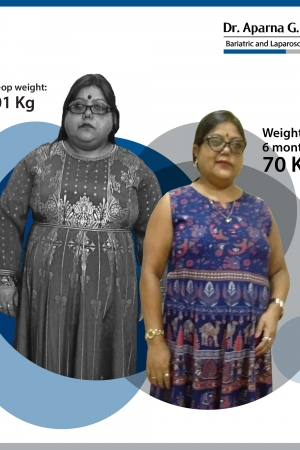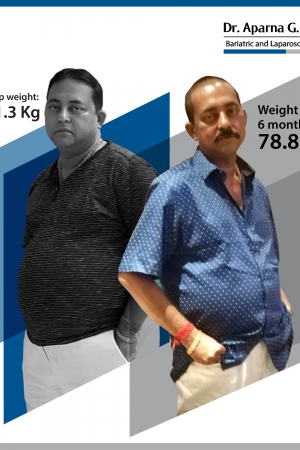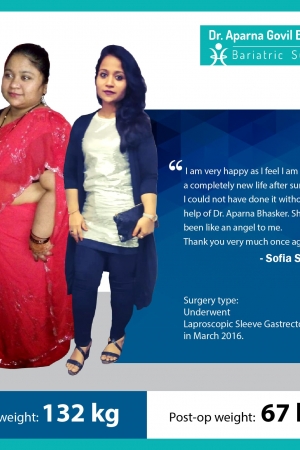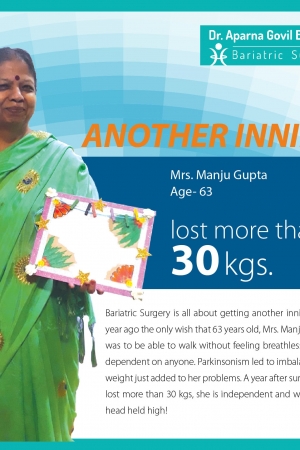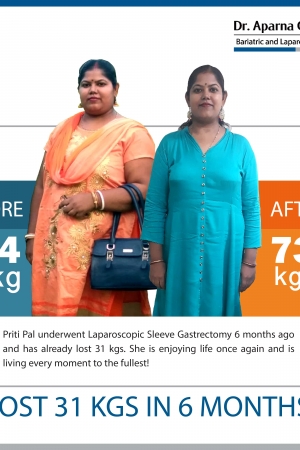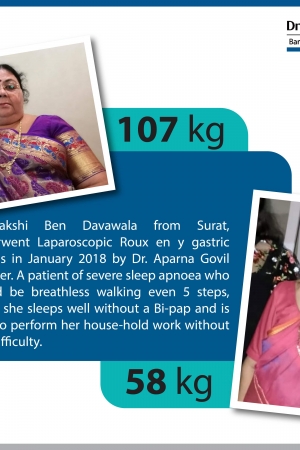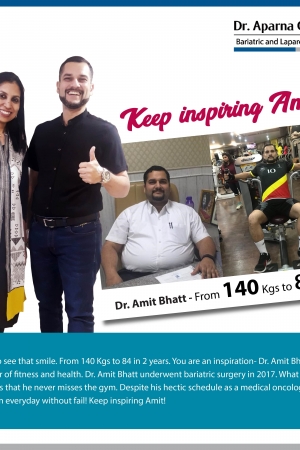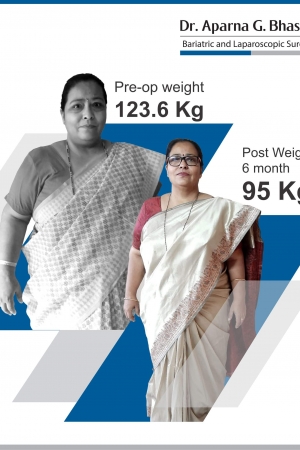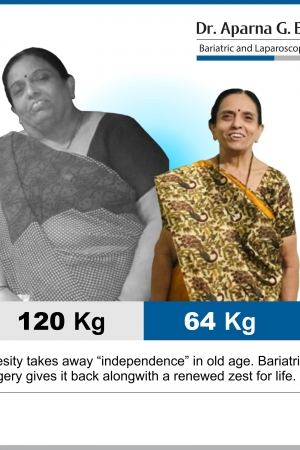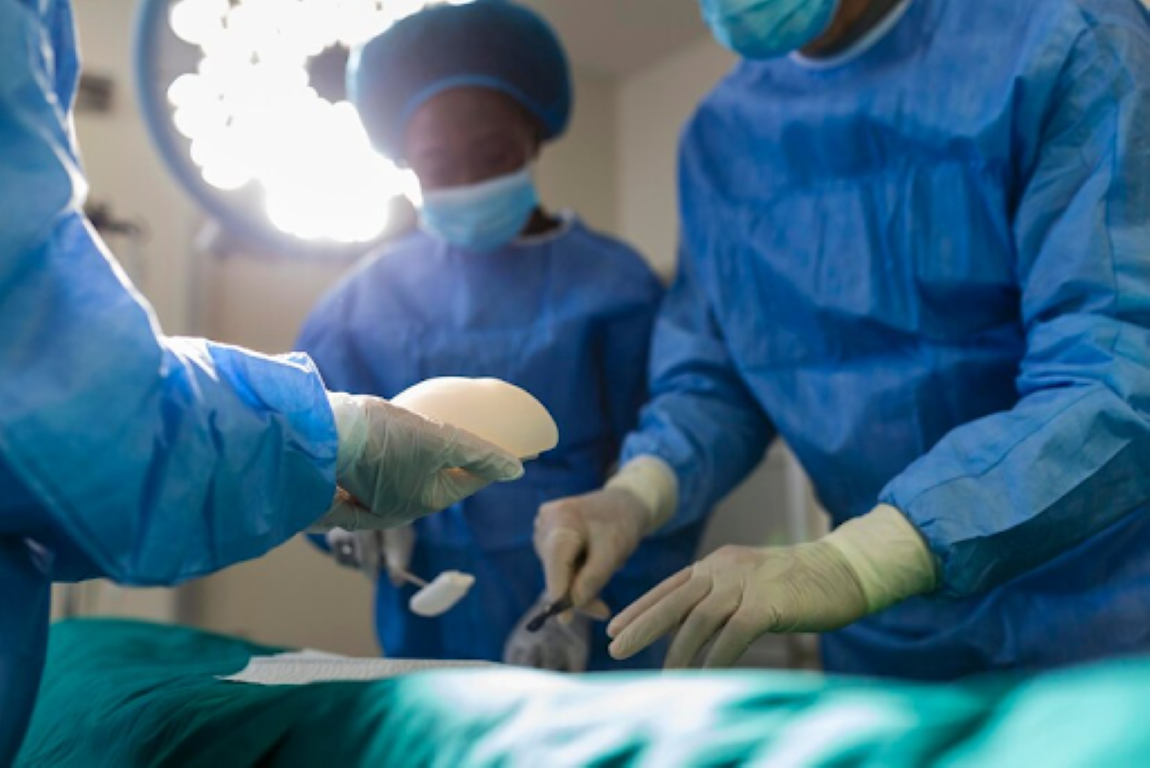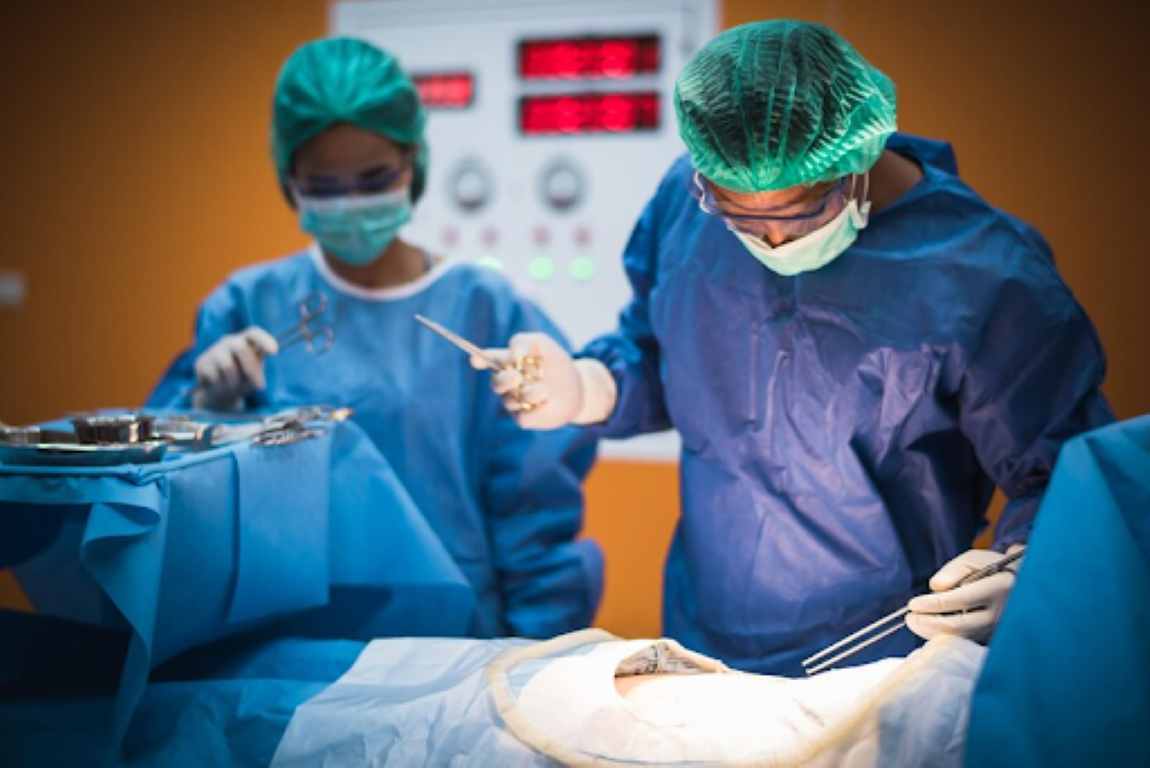Laparoscopic sleeve gastrectomy is a type of weight-loss/bariatric surgery. As the name suggests it can be performed through key-hole method (laparoscopy). In this technique 4 to 5 tiny cuts of half to one cm are made on the abdomen and the whole surgery is performed through these. Laparoscopic sleeve gastrectomy can also be performed in the scar-less manner through a single cut through the belly button. In this procedure, the stomach is divided longitudinally using surgical staplers and two-thirds of the stomach is removed. This results into a banana shaped stomach with a capacity of 60 to 100 cc.
Most common question asked by patients is about the risks associated with laparoscopic sleeve gastrectomy. Laparoscopic sleeve gastrectomy is as safe as any other surgery like laparoscopic cholecystectomy or a knee replacement surgery. The overall risk of complications is less than 1%. What we need to understand is that the risk increases or decreases based on the patient’s clinical profile. Risk stratification of the patients based on the weight, BMI and associated disease status must be done prior to the surgery. patients with higher BMI or those with multiple associated co-morbidities have a higher risk as compared to those with lower BMI and lesser co-morbidities. However, it is also important to keep in mind that inability to lose weight will eventually lead to more life-threatening issues. The risks and repercussions of not losing weight are much higher than that of being operated.
One of the immediate risks associated with a laparoscopic sleeve gastrectomy is that of a staple line leak. If the staple lines were to open up due to some reason, there can be leakage of gastric contents into the abdomen. This can lead to pus formation and septicaemia. In such cases re-surgery may be needed at times. Venous thrombo-embolism or blood clotting is another complication associated with severe obesity. Narrowing of sleeve can happen in rare cases. There are some other complications as well but the overall risk of complications is less than 1%.
In the long term the main issues observed with a laparoscopic sleeve gastrectomy in mumbai are acid reflux and weight regain. Patients with a sleeve gastrectomy must undertake all tests at regular intervals. As two-thirds of the stomach is removed, there is a potential for vitamin and iron deficiencies and these may need supplementation. Obesity is a chronic progressive disease and as with any weight loss procedure, regular follow up with the bariatric team is the key to success after a laparoscopic sleeve gastrectomy.
While we must be aware of complications, we must always weight the pros and cons of having surgery against those of not losing weight. Obesity has life threatening consequences and is the real emperor of all maladies. Fear of complications must not come in the way of taking an informed decision regarding your health.
Bariatric Surgery/Obesity Surgery/ Weight Loss Surgery in india Patients Before After Photos
Dr. Aparna Govil Bhasker is a Bariatric Surgeon in Mumbai and Advanced Laparoscopic Surgeon.
Affiliations: Global Hospital, Parel; Apollo Hospitals, CBD Belapur, Tardeo and Chembur; Currae Hospital, Thane; Suchak hospital, Malad and Namaha Hospital, Kandivali; Belle Vue Hospital, Andheri West for Bariatric Surgery, Hernia Surgery and Gallbladder Surgery etc
Mobile: +91 9819566618
Email: draparnagovil@gmail.com
Website: www.bestbariatricsurgeon.org
